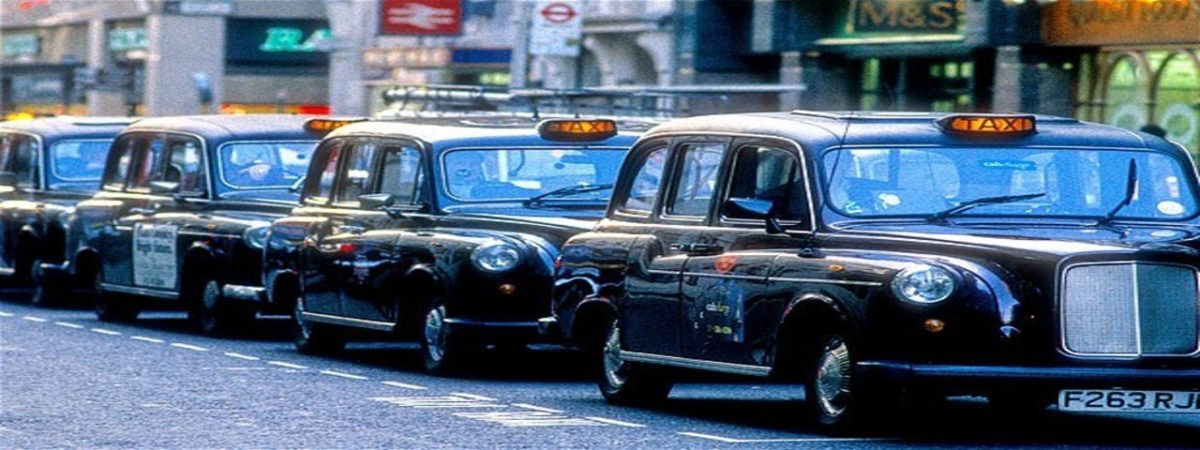Black cabs, Uber and the sharing economy: the case for private regulation
SUGGESTED



There is something strange about imagining a passenger standing next to a booked car, both the driver and the passenger ready to leave, both impatiently checking their watches and waiting for the five minutes to pass. The proposal seemed to have no other purpose than penalising consumers for the use of a politically unpopular product; an arbitrary inconvenience no more logical than a law stipulating that before entering the car, the passenger would have to stand on one leg and count to 100, or sing a song.
TfL also proposed to ban operators from displaying the location of cars that were available for immediate hire on an online map. Again, this seems like chicanery: the document was framed to be about consumer protection and improving the functioning of the market, aims which are surely best served by disseminating more information, not by deliberately withholding it.
But in a strange way, these proposals actually did have a logic of sorts. The UK maintains a strict legal distinction between taxis on the one hand, and private hire services on the other, a distinction which creates two separate markets. Only taxis are allowed to pick up passengers spontaneously on the street. Private hire services always need to be booked in advance, and via a dispatcher. Thus, private hire drivers could not cruise around waiting to be hailed, and they could not wait in a public place for somebody to approach them.
The two markets are organised in very different ways. The market for private hire services is the less regulated of the two. There is free entry and exit. Operators are free to set their own fares and determine their own fare structures. There is a variety of business models and contractual arrangements. Most taxi markets, in contrast, are government-backed cartels. The number of market participants is fixed, and so are prices. Unsurprisingly, taxi fares are therefore higher than equivalent private hire fares.
Taxis and private hire firms offer similar services, which are to some degree interchangeable. This creates a potential tension. If one market is competitive, and a closely related market is cartelised, there will always be a temptation for operators in the competitive market to get a slice of the supernormal profits that can be earned in the cartelised market. In order to maintain the distinction, the boundaries between the two markets need strict policing.
This policing used to be easy. Technological change, however, has made it a lot harder. If available hire cars can be tracked, and booked, via a mobile phone, then booking a car that is driving by in close proximity becomes indistinguishable from hailing a taxi. The act of booking an Uber or a Lyft car then becomes, effectively, an electronic form of hailing. It turns out that the separation of the taxi sector from the private hire sector owed a lot to the state of technology as it was at the time, and of the transaction costs resulting from it. Had there been some other way of finding out whether there were any empty private hire cars driving by nearby, and some other way of pre-booking them quickly, the regulatory distinction between taxis and private hire would not have been sustainable for long. Private hire services would have made inroads into the taxi market long ago, and eroded the supernormal profits that can be earned there. This did not happen because transaction costs were too high. With this in mind, proposals that otherwise seem bizarre, like the minimum waiting period and the ban on tracking cars online, suddenly begin to make some sense, at least on their own terms. They are attempts to raise transaction costs in the sector again, and to simulate a return to the technological status quo ante. If the online tracking of vehicles, and the booking for immediate use, were banned, the boundaries between taxis and private hire vehicles would be restored once again.
Rather than adapting the regulatory apparatus to the new economic reality, policy responses have tried to do the opposite and press economic reality into the old regulatory apparatus. In our new IEA Discussion Paper Hire Authority. Turning statutory regulation into private regulation for the UK’s taxi industry, my colleague Diego Zuluaga and I show that even under the old technological conditions, the regulation of taxi markets has gone well beyond the remit of what could be theoretically justified. The paper also shows that where taxi markets have been derestricted and deregulated, this has largely produced the results the Econ 101 textbook would predict. The paper goes on to discuss the advent of smartphone-enabled transport apps and the ways they have found to resolve the market inefficiencies which gave rise to taxi regulation. On this basis, we propose to replace the current two-tier model of statutory regulation with a less interventionist approach based on private governance. Regulated taxis should be granted the powers to determine their own fares and other requirements, so they can better serve passengers and compete with private hire vehicles.
This is not necessarily a model of ‘less regulation’, and certainly not one of ‘no regulation’. It is a model of competition between private regulatory brands. Because as free-marketeers, we actually like regulation – as long as it emanates from within the market.
Dr Kristian Niemietz is a co-author of the IEA Discussion Paper ‘Hire Authority. Turning statutory regulation into private regulation for the UK’s taxi industry’.
2 thoughts on “Black cabs, Uber and the sharing economy: the case for private regulation”
Comments are closed.





The ruling accused Uber of “resorting in its documentation to fictions, twisted language and even brand new terminology”: well, it is new technology, or at least a new use of technology, so new terminology is necessary. I think that this went completely over the heads of the tribunal.
You say that, ”Regulated taxis should be granted the powers to determine their own fares”: but there is the need for customers to know the fares beforehand.
A pleasant piece of writing, beneficial guidance on this article. Thanks for sharing this type writing with us! Have you anything regarding the topicheathrow taxi?